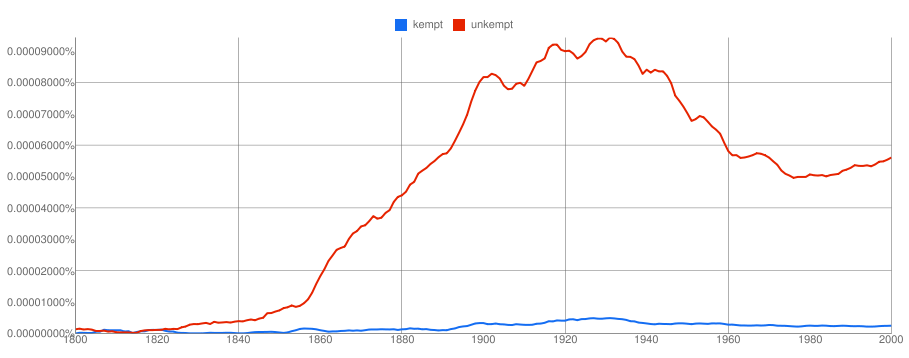Is there a term to describe an unprefixed term like sheveled that is used less or not at all compared to its prefixed relative disheveled?
My word Helen, you look very sheveled today!
Edit: Below Malvolio brings up the example of kempt which is another example of what I'm talking about. A word that has both prefixed and unprefixed forms in English, but the unprefixed form has mostly fallen out of use.

